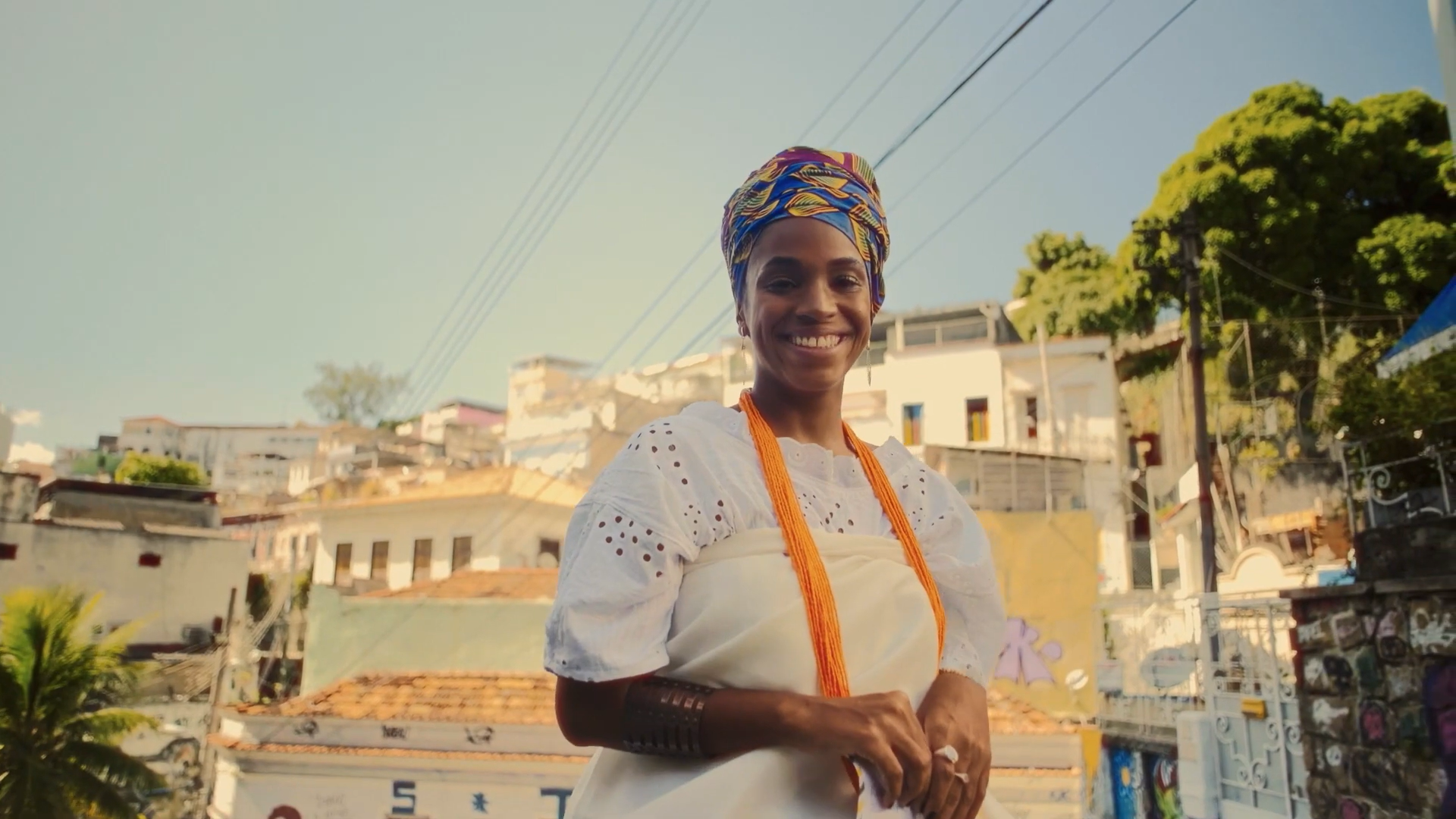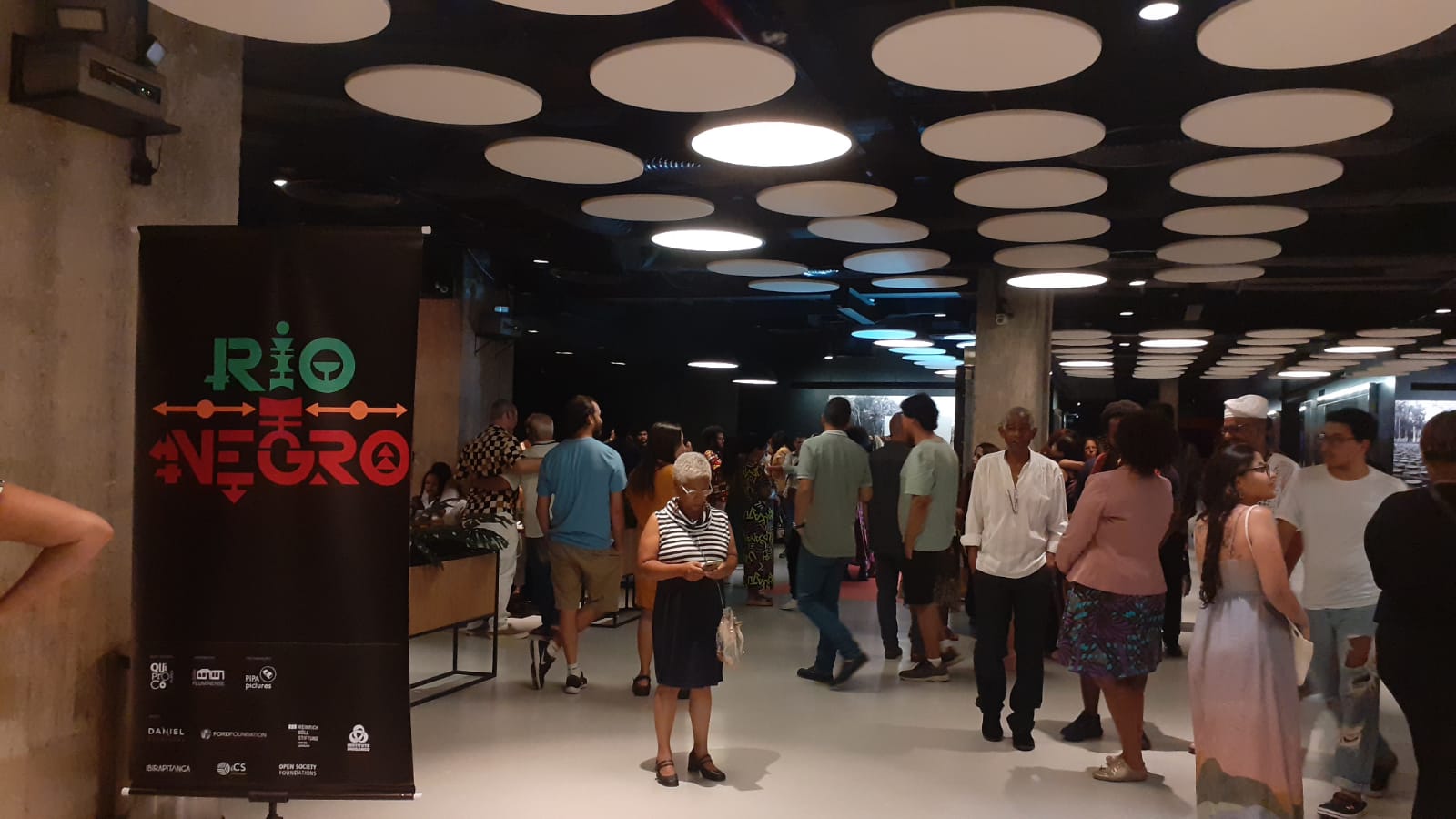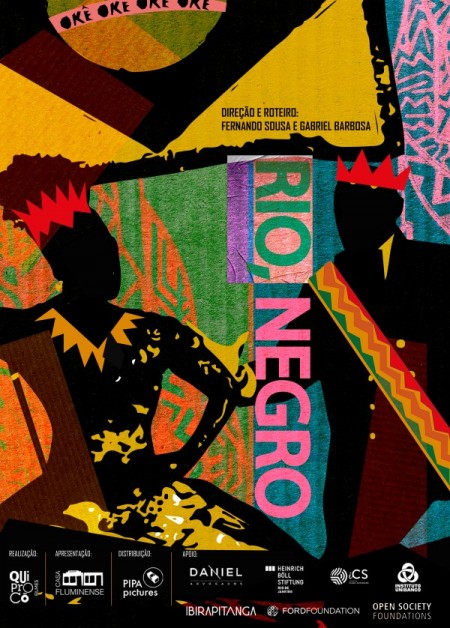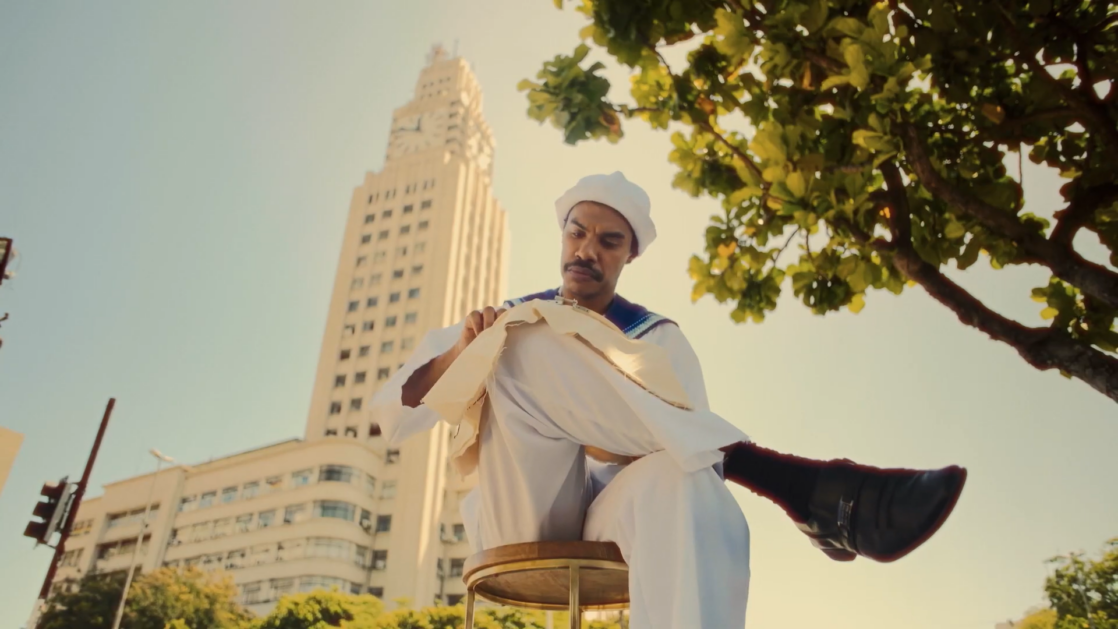
Memories propel us. They shake us from our unquestioning routines. They come out of nowhere, directly connecting past and present, without asking permission, seizing us with possibilities for projecting futures, questioning spaces, and moving forward. How many memories fit within the building of Brazil? Which of them speak to you? What is Rio de Janeiro like today? Why is this place the way it is? Is there a divided city? What stories are told and what others are still worth telling? What really gives us hope?
The documentary Rio, Negro [Black Rio and a play-on-words with Black River] is the first cultural project funded by Casa Fluminense, a civil society group formed in 2013 to foster and create effective initiatives aimed at promoting equality and strengthening democracy and sustainable development across the Rio de Janeiro metropolitan area. Produced by Quiprocó Films and distributed by Pipa Pictures, the documentary premiered in Brazil on March 2 in movie theaters in Rio, Aracaju, and São Paulo.


The documentary presents the bodies that wove together the city’s street corners and dictated its rhythm. The active contribution of people of African descent to the formation of Rio is the work’s central theme. Despite the structural invisibility of the role played by Black figures in the history of Brazil, the documentary makes clear that Rio’s culture is Black culture, just as the majority of the population—51.7%—is Black. In this way, the film reclaims the central role of Blackness in the city, portraying, in fact, a Black Rio.
Through interviews and historical material available in public archives and private collections, the documentary brilliantly interweaves personal and historical accounts creating a very subtle but powerful narrative which portrays the true face of Rio de Janeiro’s people and city. The film’s aim is to understand how Afro-Brazilian people in Rio forged their own individual paths and community bonds in this diasporic city, marked by the struggles surrounding the ‘civilizing’ project of the white elite. The documentary discusses racist ideologies, the transferring of the capital to Brasília in 1960, and the political consequences of this move for Rio de Janeiro, which had been Brazil’s capital since 1763.
An important group of researchers, celebrities, activists, and politicians weave together the film’s central argument: the necessity to expose, recognize, and reclaim the Rio made by and for Black people. Figures including Mãe Meninazinha de Oxum, Tainá de Paula, Helena Theodoro, Luiz Antônio Simas, and Leandro Vieira invite us to think about the area known as Little Africa as an inextricable part of Brazil’s history. They encourage us to understand that the history of Rio de Janeiro and the history of Brazil are, in large part, Black Brazilian history. Rio, Negro, revives the legacy of slavery in this city which was the epicenter port of entry for people kidnapped from Africa and brought into slavery in the Americas.

Little Africa, located in the port region of Rio de Janeiro, has been home to a vast heritage spanning from colonial times to the present and is part of African peoples’ contributions to Brazilian culture and diversity. The documentary reclaims the need to physically preserve Little Africa in Rio de Janeiro. It is an appeal to the authorities who have historically neglected majority Black parts of the city. In summary, Rio, Negro, just like Little Africa, is part of the reconstruction of a Rio and Brazilian identity rooted in the history and legacy of the African and Afro-Brazilian population. It is an essential historical document about Rio and its people.
Rio, Negro premiered in Rio, Aracaju, and São Paulo, and has since been reaching audiences across Brazil with screenings in Palmas, Tocantins, Santa Catarina, and Porto Alegre. Distributor Pipa Pictures informed RioOnWatch that the documentary will be available on streaming platforms in the near future.
Watch the trailer for Rio, Negro:
About the author: Cleyton Santanna holds degrees in journalism and screenwriting from Federal Rural University of Rio de Janeiro (UFRRJ) and the CriaAtivo Film School. He uses his YouTube channel to address oddities, ancestry, and Afro-Brazilian culture. In 2017, he produced two documentaries: “Entre Negros” (Between Blacks) and “Tudo Vai Ficar Bem” (Everything is Gonna Be OK), and was recognized as a screenwriter in 2018 by the Creative Economy Network for the short “Vandinho.” He is currently a communicator for the Museum of Tomorrow and hosts the Influência Negra podcast.
